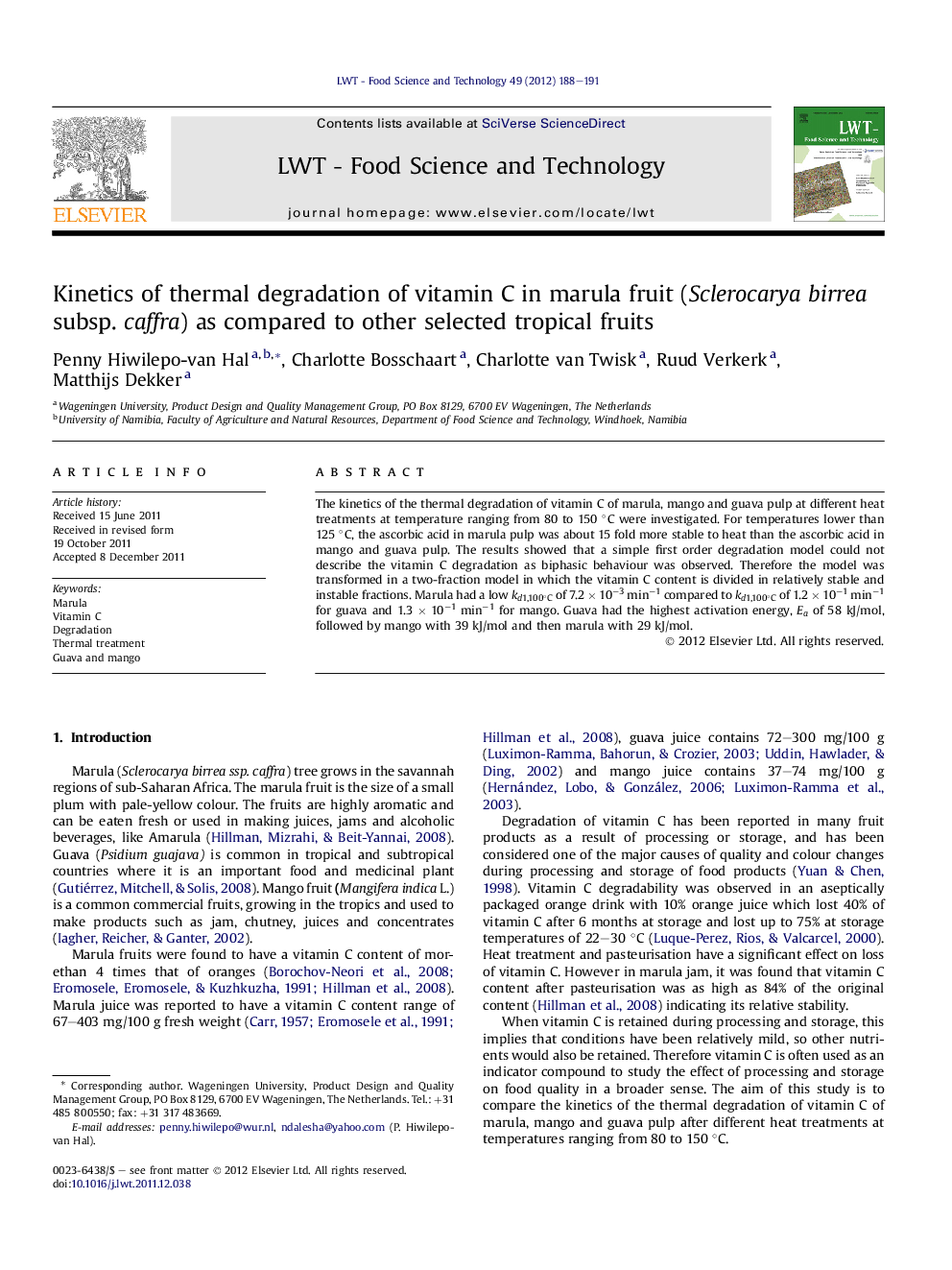| Article ID | Journal | Published Year | Pages | File Type |
|---|---|---|---|---|
| 4563965 | LWT - Food Science and Technology | 2012 | 4 Pages |
The kinetics of the thermal degradation of vitamin C of marula, mango and guava pulp at different heat treatments at temperature ranging from 80 to 150 °C were investigated. For temperatures lower than 125 °C, the ascorbic acid in marula pulp was about 15 fold more stable to heat than the ascorbic acid in mango and guava pulp. The results showed that a simple first order degradation model could not describe the vitamin C degradation as biphasic behaviour was observed. Therefore the model was transformed in a two-fraction model in which the vitamin C content is divided in relatively stable and instable fractions. Marula had a low kd1,100°C of 7.2 × 10−3 min−1 compared to kd1,100°C of 1.2 × 10−1 min−1 for guava and 1.3 × 10−1 min−1 for mango. Guava had the highest activation energy, Ea of 58 kJ/mol, followed by mango with 39 kJ/mol and then marula with 29 kJ/mol.
► We compared vitamin C degradation of Marula, Mango and Guava pulp at 80–150 °C. ► Vitamin C in Marula pulp is 15 times more stable than in Mango and Guava pulp. ► Vitamin C degradation can be described by a two fraction - first order model.
